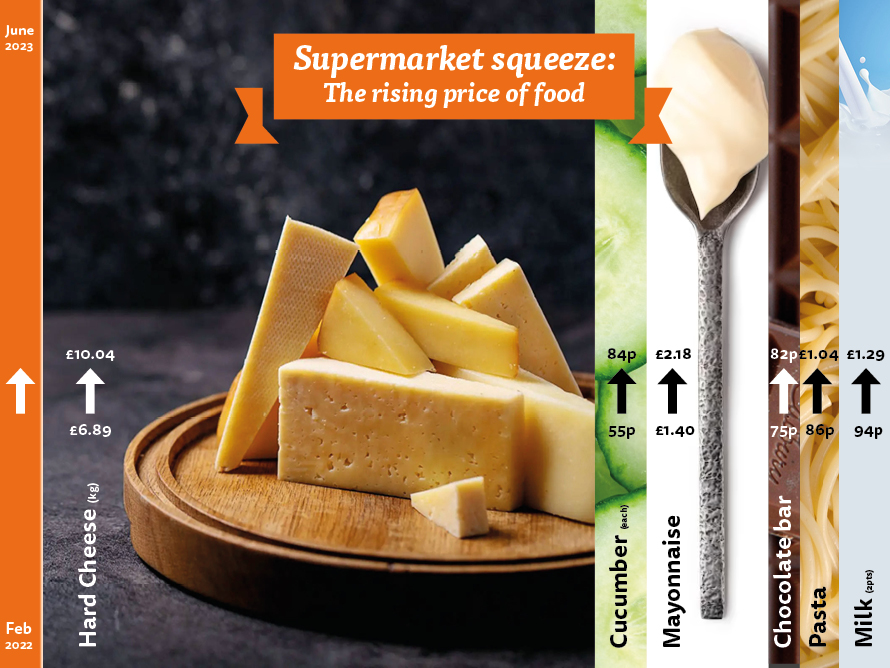Will the cost of living crisis ever end? The Bank of England has raised interest rates to stop inflation from going any higher. Some think it is a sign that the UK's economy has a bleak future ahead.
Recession ‘inevitable’ after inflation shock
 Coin-cidence? Inflation stayed at 8.7% in April and May, down from a peak of 11.1% last year.
Coin-cidence? Inflation stayed at 8.7% in April and May, down from a peak of 11.1% last year. Glossary
Bank of England - The central bank of the UK. Like other central banks around the world, it tries to stabilise the economy by keeping down inflation and offering loans to struggling banks.
Interest rates - The interest rate tells you how high the cost of borrowing is, or how high the reward for saving is. If it is more expensive for businesses and consumers to borrow, they will spend less and inflation will fall.
Inflation - An increase in the price of goods in an economy.
Purchasing power - The amount that can be purchased for the same sum of money.
Recession - A period of economic decline. A recession occurs when a country’s Gross Domestic Product falls for six months in a row.
Consecutive - One after the other.
